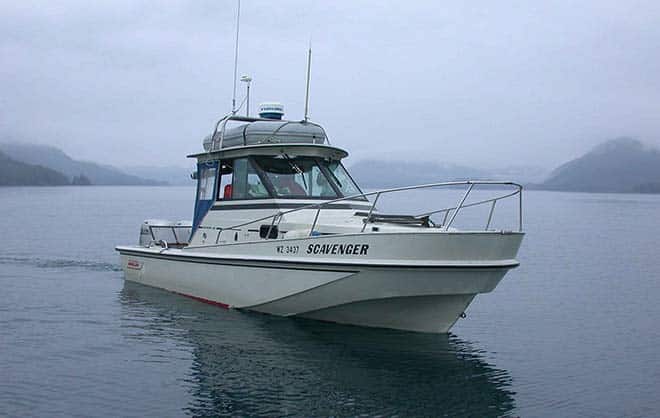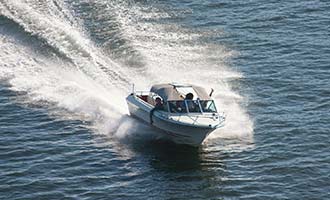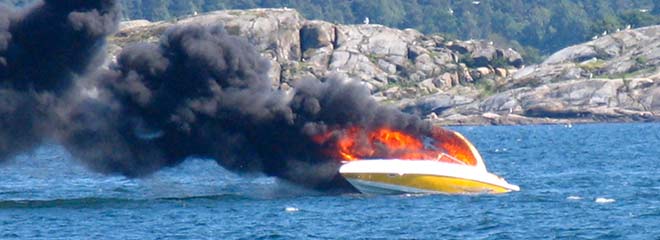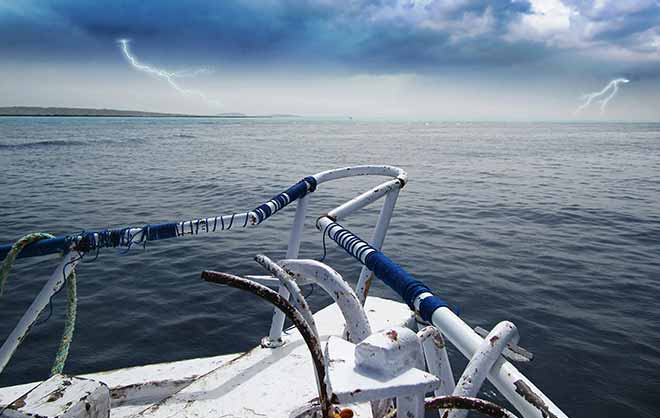
The US Coast Guard’s Recreational Boating Statistics Guide for 2014 shows that most accidents were caused by events that were either partly or entirely within the control of the boat’s operator. If the boat operator had acted responsibly, most of these boating accidents could have been avoided.
These are the top 10 causes of boating accidents:
1. Operator Inattention: There are many possible distractions onboard a boat. However, operators of boats are expected to stay alert and pay close attention to the weather, the boat, and their passengers. The unpredictability of the wind, weather, and water requires that operators watch out for early warning signs of danger. Statistics show that operator inattention and distraction is the leading cause of boating accidents.
2. Improper Lookout: Improper lookout was another factor contributing to accidents. If possible, a lookout on the boat should be designated to watch out for threats or hazards that the boat operator might miss. Failure to do so can have catastrophic consequences.

3. Operator Inexperience: Operator inexperience was the third leading cause of accidents. Boat operators need to understand the basics of boating, such as admiralty law, navigation rules, and how to handle emergency situations.
4. Excessive Speed: Boating at a safe speed ensures the operator and boat passengers have time to react to dangers. Just like roadways, most waterways have speed limits and driving too fast can result in collisions with boats, other hazards, or roll overs.
5. Alcohol Use: Alcohol use can be a factor in boat accidents resulting in death or serious injury. Although alcohol use resulted in the fifth highest number of accidents, they were the deadliest type of accident. In 2014, the same number of people died from alcohol related boating accidents as from the top three other causes combined. Most states have the same alcohol limits for boat operators as they do for automobile drivers. In RI and MA, the limit is 0.08% Blood Alcohol Content.
6. Machinery Failure: Proper maintenance of the boat is the responsibility of the owner and routine checks should be made by the operator to ensure the boat is in good condition. Failures of the steering mechanism, motor, or the hull of the boat can be very problematic.

7. Navigational Rules Violations: Violations of rules governing the navigation of boats are often among the top causes of accidents. Boaters can know how to operate their craft, but may not be certain of rules of the waterway, can lead to collisions with other boats or running their boat aground.
8. Hazardous Waters: Hazardous waters arise when sudden changes in the current or rapid tidal flows make it difficult to operate boats. While some hazardous waters are unpredictable, there are some rough areas that attract operators of smaller vessels, without regard to the dangers of the waters. Operators should be mindful in the event that any dangerous conditions come up.
9. Weather: Some people fail to check weather conditions when the sky appears clear and sunny because they assume that fair weather will continue. Some choose to just ignore the weather conditions. Boat operators should always keep an eye on the weather conditions when heading in or out for trips.

10. Force of Waves/Wake: A wake follows the track of a moving boat. This is the disturbance of the water resulting from the passage of the boat’s hull. The force of the wake/waves can cause accidents, injuries, and even death.

If you have been injured in a boating accident, you may be entitled to compensation for your medical bills, lost income and pain and suffering, among other losses. Our personal injury law firm (link to the Boating Accident Lawyer page) is accepting boating accident cases and we do not charge a fee unless you win a settlement or award. Call us toll free at 1-800-992-6878 or fill out a contact form online for a free (no obligation) case evaluation.

